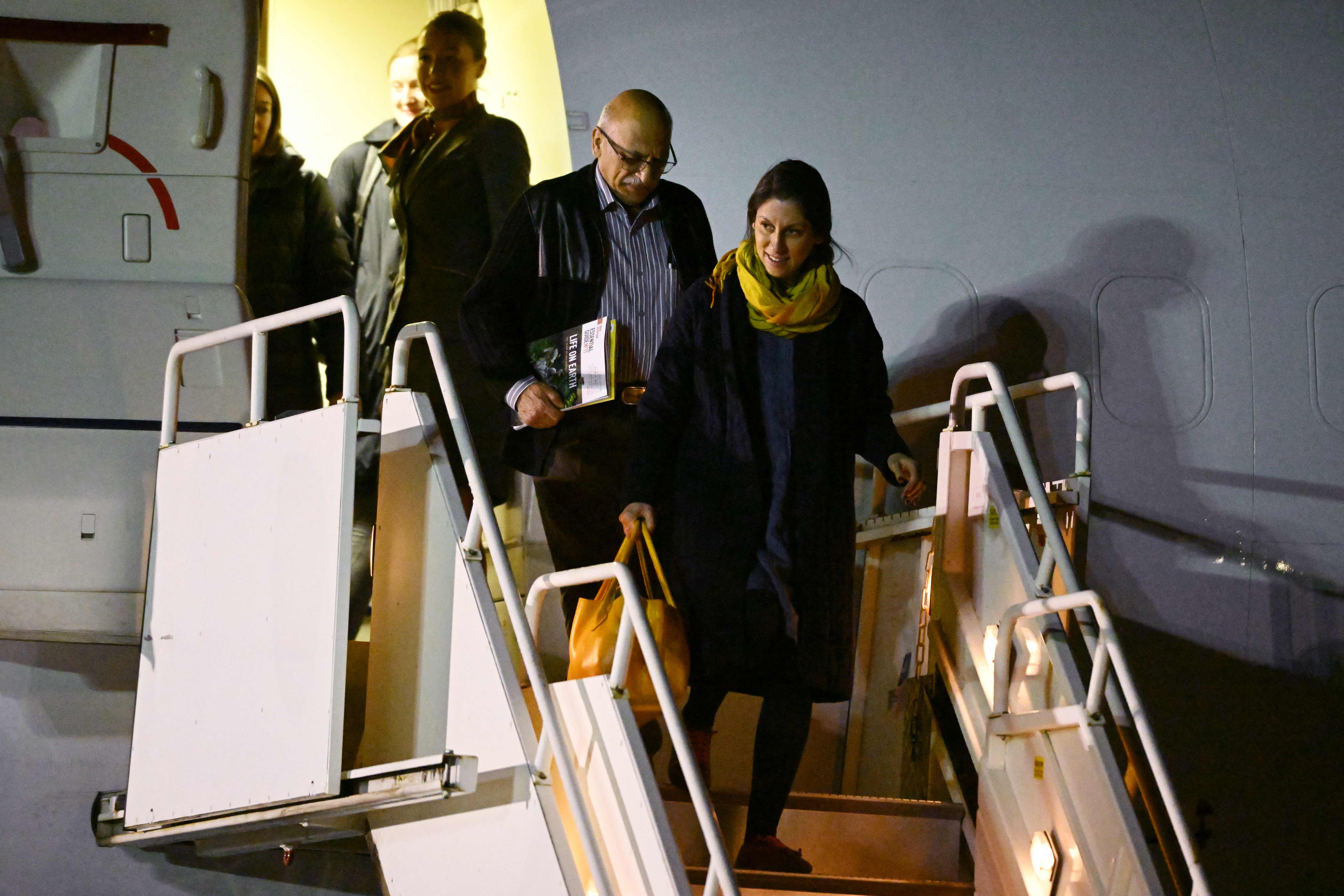Those of us who know Nazanin hardly dared believe that she would come home
Through our phone calls whilst she was under house arrest, I came to know Nazanin as an incredibly resilient and courageous person. Despite her terror, frustration and deep sorrow, her spirit never broke


Your support helps us to tell the story
From reproductive rights to climate change to Big Tech, The Independent is on the ground when the story is developing. Whether it's investigating the financials of Elon Musk's pro-Trump PAC or producing our latest documentary, 'The A Word', which shines a light on the American women fighting for reproductive rights, we know how important it is to parse out the facts from the messaging.
At such a critical moment in US history, we need reporters on the ground. Your donation allows us to keep sending journalists to speak to both sides of the story.
The Independent is trusted by Americans across the entire political spectrum. And unlike many other quality news outlets, we choose not to lock Americans out of our reporting and analysis with paywalls. We believe quality journalism should be available to everyone, paid for by those who can afford it.
Your support makes all the difference.This is a rare moment of joy in the bleakest of times. Against a backdrop of war, suffering and other crimes against humanity around the world, Nazanin Zaghari-Ratcliffe’s release from her torturous six-year confinement offers us a powerful ray of hope.
Hope that against the odds and despite the circumstances, this innocent victim of an historical, political conflict has survived the most appalling violation of her liberty, the separation from her loved ones, and intense psychological and physical trauma. Hope that there can be a happy resolution to the most terrifying and inhumane of ordeals.
Over the past six years, hope has sometimes been in short supply, so much so that the previous 48 hours have seemed utterly surreal. Those of us close to Nazanin didn’t dare believe that she might actually be coming home.
After all, hope had been offered before, only to be cruelly and arbitrarily snatched away. After enduring a living hell in prison – eight and a half months of it in solitary confinement – time and again she was offered “temporary furlough”, this small taste of freedom always ending with a return to the horrors of jail, or an extended prison sentence.
There has never been any question of Nazanin’s innocence. The events when they first unfolded were mystifying. And as they developed, with growing horror, we felt completely powerless to stop them. No amount of clarifying that the Thomson Reuters Foundation does not operate in Iran, that Nazanin did not train journalists, that she was not visiting Iran on our behalf, made the slightest difference.
Facts and truth-telling were not wanted here. Nazanin was a political hostage. And false charges, misinformation, the complexities of international relations, behind the scenes negotiations – all of these continued to form a terrifying backdrop to Nazanin’s plight. Her fate was in someone else’s hands.
But Nazanin is simply extraordinary. As her colleague, I’d known Nazanin to be a professional and dedicated project manager. But through our phone calls whilst she was under house arrest, I came to know Nazanin as an incredibly resilient and courageous person. Her ability to endure throughout hunger strikes, illness, anxiety and brutality was astonishing. Despite her terror, frustration and deep sorrow at her situation, her spirit never broke.
I was struck at how she would also speak lucidly and thoughtfully about so many other things. During our phone calls, we’d talk about books we both loved, religion, philosophy – it felt important to touch on these things still available to her. I’d also remind her that her friends and colleagues were there for her, that her job had been held open, that she was missed, that we were doing all we could to support the campaign for her release. But when words failed, I knew I had to respect the gravity of her situation, and the pain she was in.
Her strength speaks also to the strength of her husband, Richard, whose tireless campaigning kept her spirit alive and her situation front and centre in the hearts and minds of the world. I am full of admiration for them both, for this couple whose young daughter has no memories of seeing them together and is only just beginning to understand that she has a future with them both.
To keep up to speed with all the latest opinions and comment, sign up to our free weekly Voices Dispatches newsletter by clicking here
What Nazanin couldn’t see was the groundswell of love and support in response to Richard’s campaigning. I remember jumping into a cab one day and the driver asking where I worked. When I told him I was CEO of the Thomson Reuters Foundation, he immediately asked me if I knew Nazanin. I relayed this anecdote to Nazanin, who couldn’t believe it. She had inadvertently become one of the most famous women in the world.
It is into this new world that Nazanin will arrive, and into a new life that will bear no resemblance to her past. Our joy at her freedom must be tempered by the knowledge of what she has endured. This will always live with her, of course, and in ways we may never know.
For our part, Nazanin has always remained one of the team and we cannot wait to see her again, whenever she feels ready to return. The Thomson Reuters Foundation’s work is focused on media freedom, fostering inclusive economies and advancing human rights, and I know her experiences would give us valuable insights into some of the most critical issues arising from these themes.
But for now, our greatest hope must be that – surrounded by those that love her – Nazanin’s new life is filled with happiness, that she receives all the support and care she needs to come to terms with her past, and that her path to recovery begins right here, right now.
Antonio Zappulla is CEO of the Thomson Reuters Foundation
Join our commenting forum
Join thought-provoking conversations, follow other Independent readers and see their replies
Comments